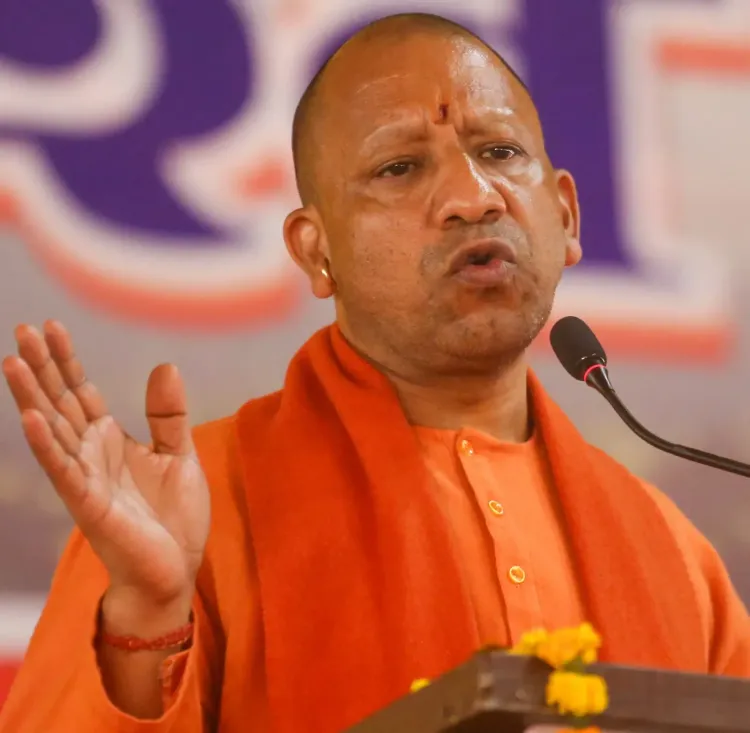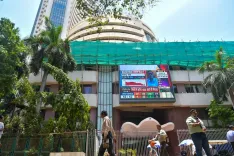Yogi Adityanath to Launch Climate Conclave at Mahakumbh

Synopsis
Key Takeaways
- Inauguration of climate conclave by Yogi Adityanath.
- Focus on religious leaders' role in environmental protection.
- Panel discussions on sustainability in religious practices.
- Declaration to outline environmental responsibilities.
- Commitment to make religious institutions sustainable.
Prayagraj, Feb 15 (NationPress) During the Mahakumbh Mela 2025, the Chief Minister of Uttar Pradesh, Yogi Adityanath, is set to kick off a significant climate conclave on Sunday, focusing on the contributions of religious leaders in the realms of environmental protection and climate change mitigation.
Key topics of discussion will include the sacred rivers, water security, and climate change.
The conclave, titled ‘Faith of Kumbh and Climate Change’, will feature prominent religious figures such as Gaur Gopal Das, Swami Mukundananda, Shalini Mehrotra from Shri Ram Chandra Mission, Sister Manorama from Brahma Kumaris, Prof Chandramauli Upadhyay of Kashi Vishwanath Temple, and Swami Atmashradhananda of the Ramakrishna Mission, among others.
Senior officials from the Ministry of Environment, Forest and Climate Change, along with representatives from energy departments and pollution control boards across India, are also expected to attend, as stated in an official announcement. Voices from civil society, including Chandra Bhushan, CEO of iFOREST, Rajendra Singh, known as the waterman of India, and Anil Kumar Jain, Chairman of the Petroleum and Natural Gas Regulatory Board, will also participate.
Academics such as Upendra Tripathi from the National Institute of Advanced Studies, Rajendra Ratnoo of the National Institute of Disaster Management (NIDM), and R.R. Rashmi from TERI will engage in panel discussions.
Topics for the panel discussions will encompass environmentally sound religious centers and congregations with a specific focus on Mahakumbh, the involvement of governments in supporting faith-based organizations in climate action, and the promotion of Mission LiFE (Lifestyle for Environment) by religious groups, along with the role of these organizations in disaster relief and climate adaptation and mitigation.
A key feature of the event will be a ‘Sankalp Patra’, a signed declaration by all participants, which will define a set of guidelines pertaining to our environmental responsibilities. This will particularly emphasize the role of religious organizations in enhancing conversation efforts.
The climate conclave is being organized by the state Department of Environment, Forest and Climate Change in collaboration with iFOREST. This initiative comes at a critical time when issues related to climate change and environmental degradation are becoming increasingly severe on a global scale.
In such times, the influence of religious and spiritual leaders is vital for motivating sustainable practices and climate action.
This conclave aims to connect the sacred with the sustainable, acknowledging that faith communities, with their moral authority and outreach, are essential partners in combating the climate crisis.
The timing of this amalgamation of spirituality and sustainability is crucial. A fundamental aspect of the conclave is the commitment of the Uttar Pradesh government to ‘green’ religious institutions.
The state envisions transforming religious centers and shrines into exemplars of sustainability by implementing measures such as solar panels, rainwater harvesting systems, waste recycling initiatives, prohibiting single-use plastics, and establishing green zones around sacred sites.
Furthermore, the state’s commitment includes financing faith-based organizations to encourage environmental education, campaigns, and practical actions. Initiatives such as eco-friendly pilgrimages, green festivals, and sustainable temple administration are anticipated to minimize the carbon footprint associated with religious practices.








